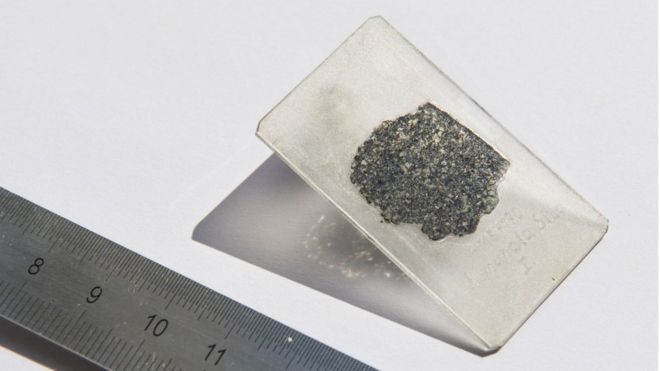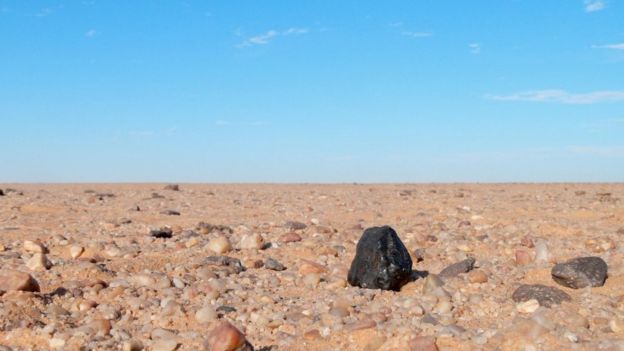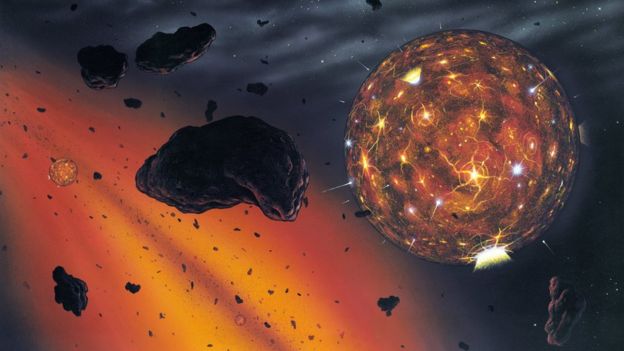
A diamond-bearing space rock that exploded in Earth's atmosphere in 2008 was part of a lost planet from the early Solar System, a study suggests.
The parent "proto-planet" would have existed billions of years ago before breaking up in a collision and was about as large as Mercury or Mars.
A team has published their results in the journal Nature Communications.
They argue that the pressures necessary to produce diamonds of this kind could only occur in planet of this size.
Using three different types of microscopy, the researchers characterised the mineral and chemical make-up of the diamond-bearing rocks. The fragments were scattered across the Nubian desert of northern Sudan after the asteroid 2008 TC3 exploded 37km above the ground on 7 October 2008.

About 50 pieces of the 4m-wide space rock - ranging in size from 1-10cm - were eventually gathered. The fragments are known collectively as the Almahata Sitta meteorites (the name is Arabic for "Station Six", after a nearby train station).
Some of the material trapped in the diamonds since formation (these features are known as inclusions) can only form above pressures of about 20 gigapascals (GPa), the scientists report. Such conditions "can only be attained in a large planetary body".
Farhang Nabiei, from the École polytechnique fédérale de Lausanne (EPFL) in Switzerland, and colleagues say the measurements provide "the first compelling evidence for such a large body that has since disappeared".
The finding also boosts the theory that today's Solar System planets were forged from the remains of tens of large "proto-planets".

The parent body for 2008 TC3 may have formed in the Solar System's first 10 million years.
The meteorites from this collision fall into a category of space rocks called ureilites, which account for less than 1% of objects that collide with Earth.
The researchers suggest all ureilite asteroids may be remnants of the same proto-planet.
The team wrote: "Mars-sized bodies (such as the giant impactor that formed the Moon were common, and either accreted to form larger planets, or collided with the Sun or were ejected from the Solar System.
"This study provides convincing evidence that the ureilite parent body was one such large 'lost' planet before it was destroyed by collisons."

No comments:
Post a Comment